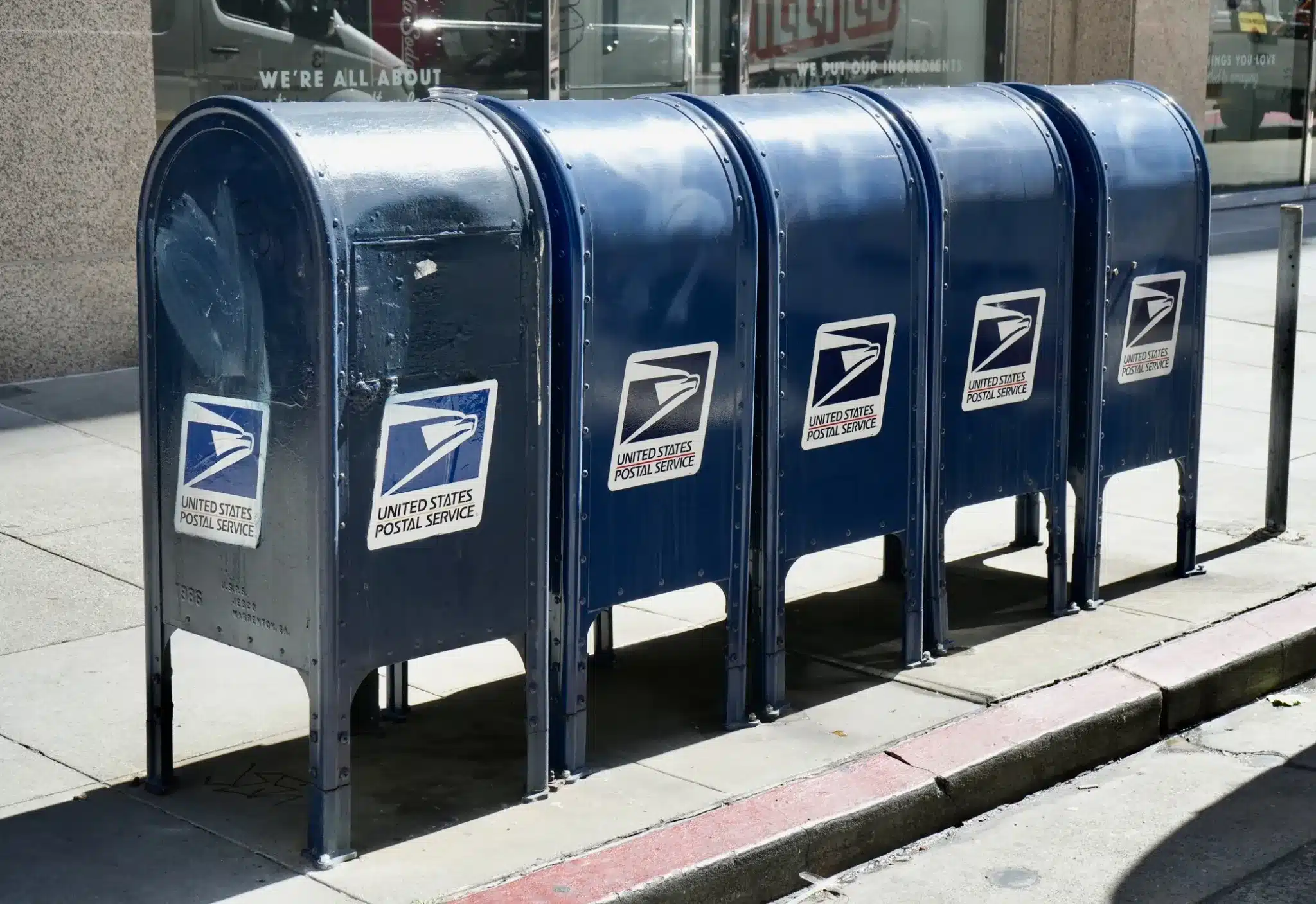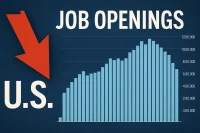The White House is firmly denying claims President Donald Trump is considering moving the U.S. Postal Service (USPS) under government control as a first step toward privatizing the 250-year-old agency.
Despite reports circulating about an executive order aimed at transferring USPS to the Commerce Department, the White House insists no such plan is in the works.
Alleged Executive Order Sparks Backlash
According to a Washington Post report, Trump is expected to sign an executive order removing the independent agency’s governing board members.
The proposal would place USPS under the jurisdiction of the Commerce Department, with Secretary Howard Lutnick overseeing its operations.
The move has triggered immediate reactions, including from the USPS board, which held an emergency meeting Thursday to discuss potential legal actions.
The board retained a lawyer and signaled intentions to sue if the executive order proceeds.

The Financial Struggles of USPS
Amid these developments, USPS continues to face significant financial losses. In fiscal year 2024, the agency reported a nearly $10 billion loss, up from a $6.5 billion deficit the previous year.
A major factor in this increase was a rise in non-cash workers’ compensation expenses, according to USPS reports.
The announcement comes shortly after Postmaster General Louis DeJoy informed the USPS board of his plans to step down.
This, coupled with the ongoing financial strain, has intensified the debate over the future of USPS.
Trump’s Views on Privatization
Privatizing USPS is not a new idea for Trump. At a Mar-a-Lago press conference in December 2024, he remarked that privatizing the service “is not the worst idea I’ve ever heard.”
He said, in today’s world, companies like Amazon, UPS, and FedEx provide similar services, making the idea of privatization more viable than before.
This is not the first time Trump has explored privatizing the postal service. During his first term, he also considered such a move as part of his broader policy on government reforms.
Concerns Over Privatization
Critics of privatization have expressed concerns about the potential impact on Americans’ access to essential services.
Virginia Rep. Gerry Connolly called the push to privatize USPS “an attack on Americans’ access to critical information, benefits, and life-saving medical care.”
He said:
“The Postal Service is a nonpartisan, Constitutionally authorized, self-sustaining agency that serves the American people. Millions of Americans rely on the Postal Service every day to deliver mail, medications, ballots, and so much more.
“Privatizing the Postal Service is an attack on Americans’ access to critical information, benefits, and life-saving medical care. It is clear that Trump and his cronies value lining their own pockets more than the lives and connection of the American public.”
Ohio Rep. Marcy Kaptur also voiced her concerns, emphasizing the crucial role USPS plays in ensuring mail delivery to all Americans, regardless of location.
Kaptur highlighted how rural communities and seniors rely on USPS, especially where private companies may not offer service.
In an X post, she wrote:
“No matter where you live, neither rain nor snow nor sleet nor hail, they will deliver.”
She warned any attempt to close or privatize USPS would harm rural areas and seniors who depend on the agency for a variety of services.
What’s Next for USPS?
The future of the US Postal Service remains uncertain.
While Trump’s plans to privatize the agency are still unclear, the debate surrounding USPS’s financial challenges and its role in American society continues to heat up.
As the situation unfolds, all eyes are on whether any action will be taken toward restructuring or privatizing the agency.
The outcome could have far-reaching consequences for how Americans access essential services, from prescription medications to mail-in ballots.
Need Career Advice? Get employment skills advice at all levels of your career
What’s at Stake?
The push for privatization raises questions about the role of government in delivering essential services. Will USPS remain a public service, or will it transition to a private entity?
For millions of Americans, the answer to this question could change how they receive critical mail and services.
As political leaders, USPS officials, and the public continue to weigh in, it’s clear that the future of the U.S. Postal Service is a highly contentious issue.




